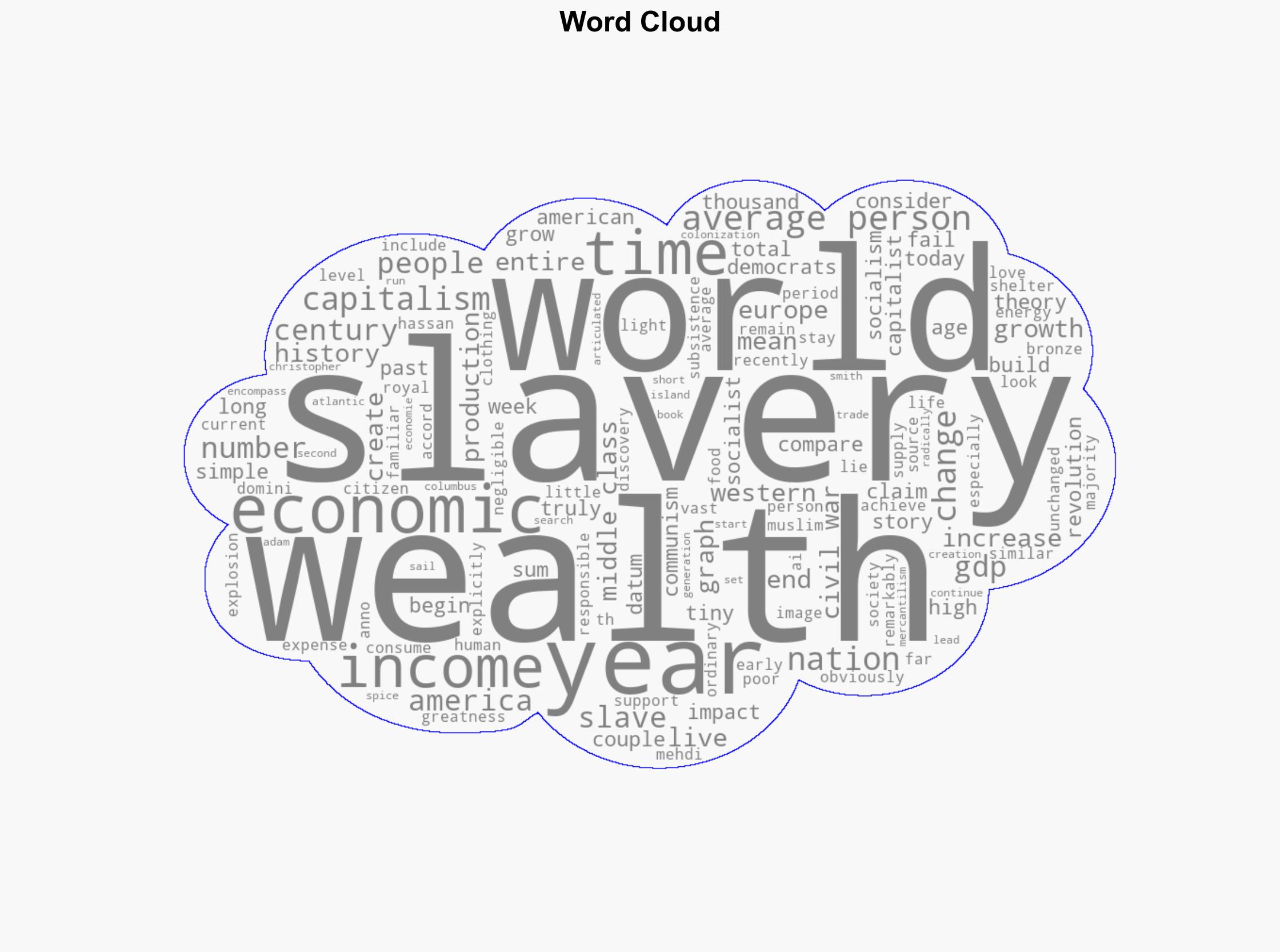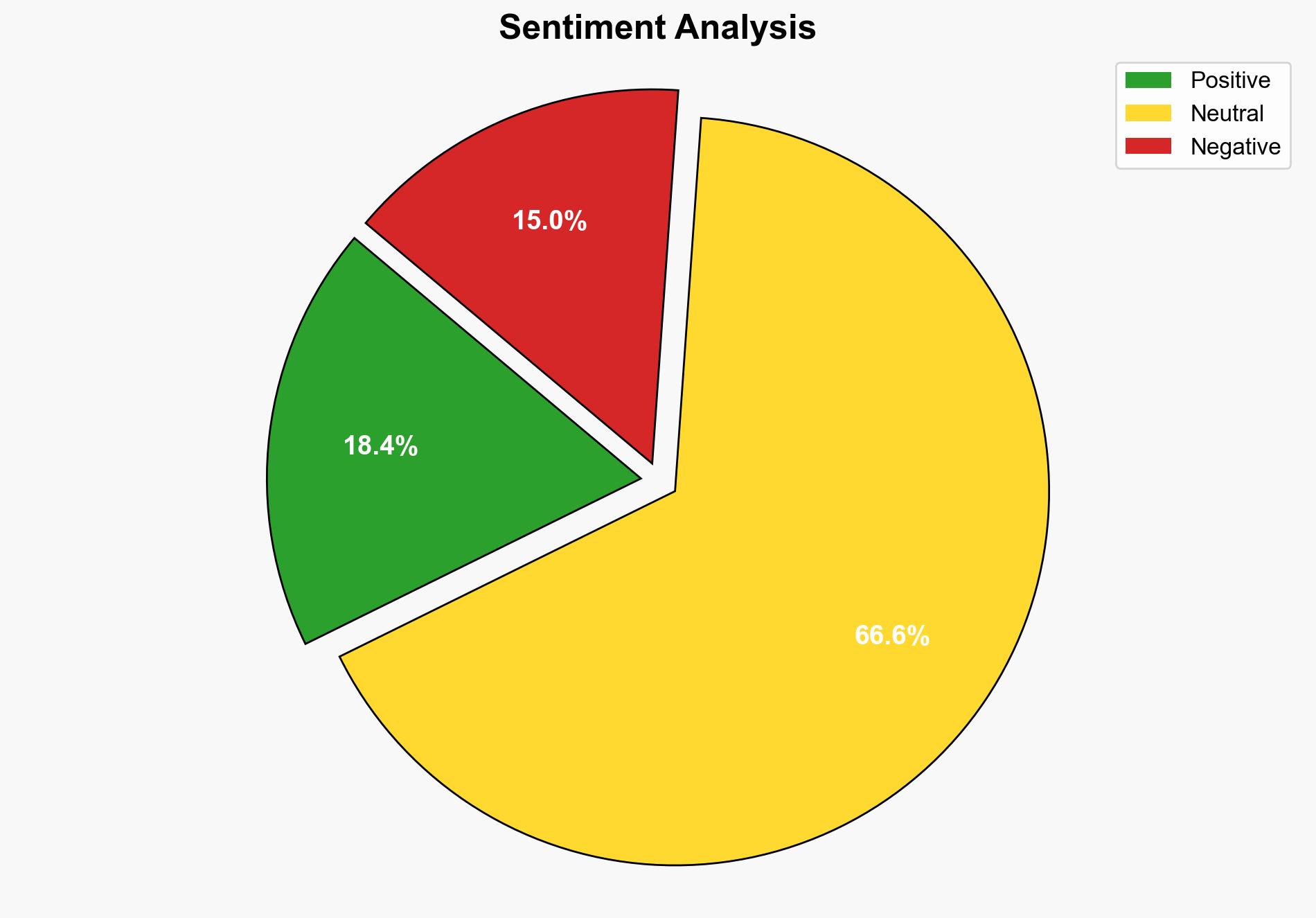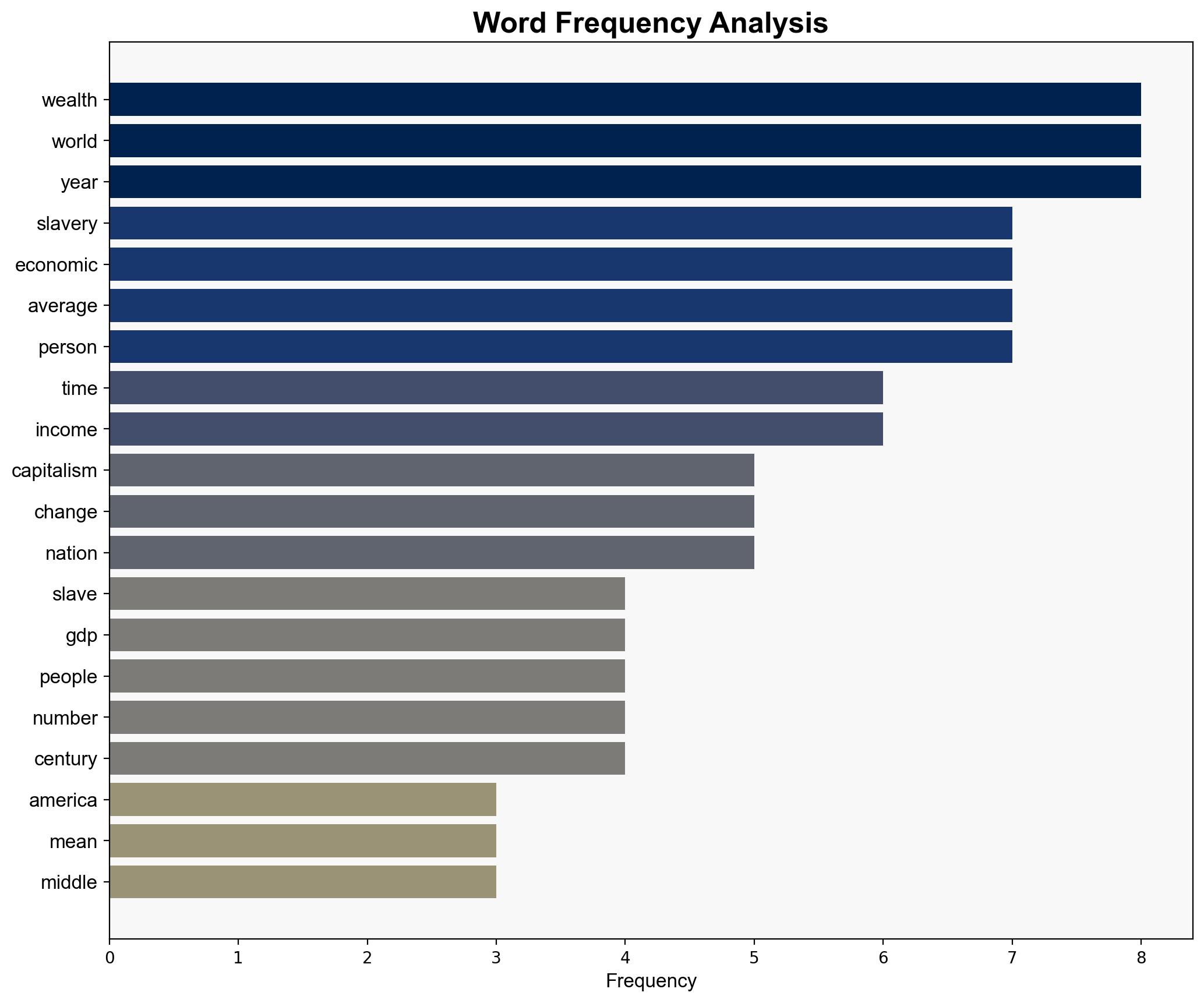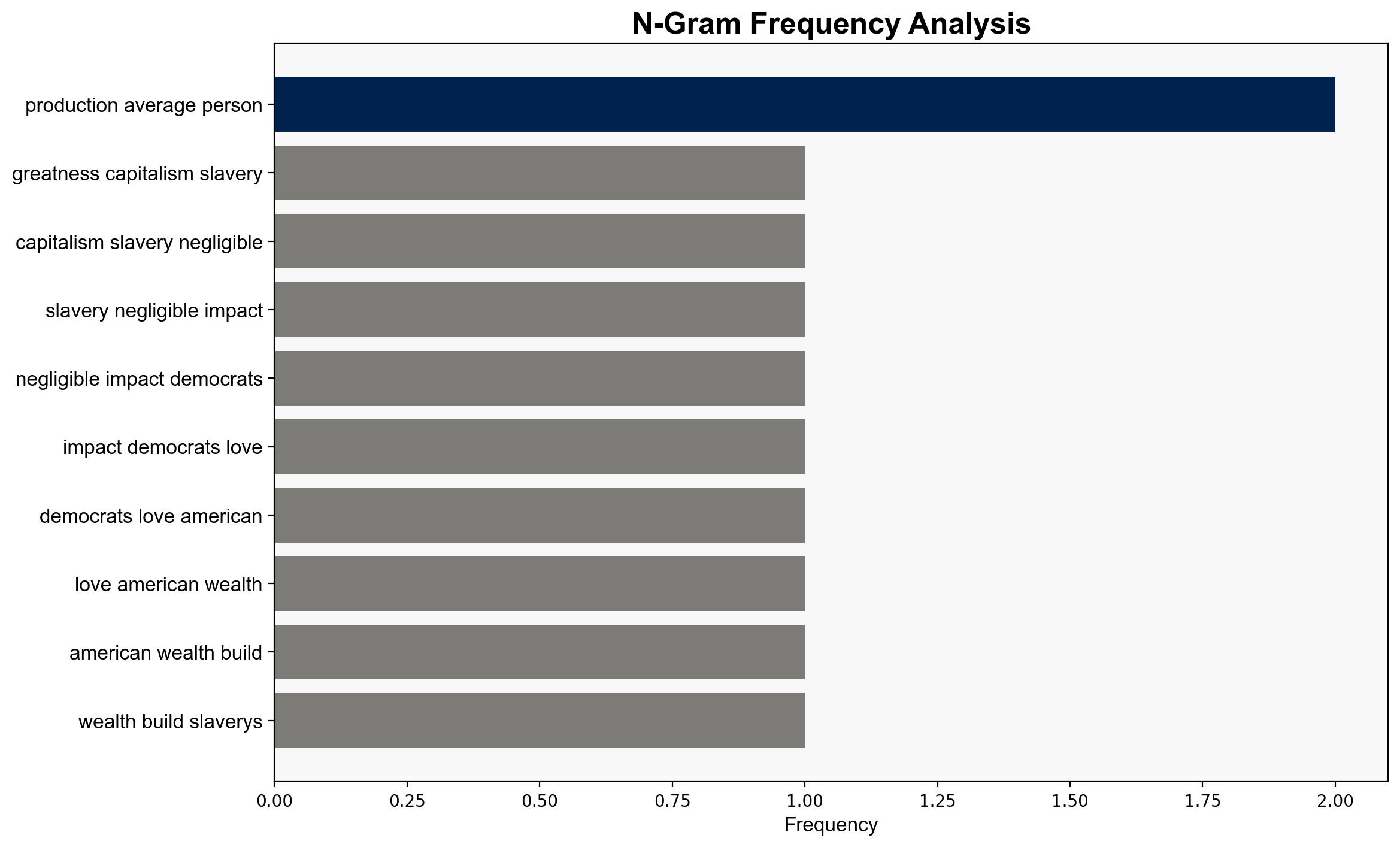The greatness of capitalism and slaverys negligible impact – Americanthinker.com
Published on: 2025-10-25
Intelligence Report: The Greatness of Capitalism and Slavery’s Negligible Impact – Americanthinker.com
1. BLUF (Bottom Line Up Front)
The analysis suggests that the hypothesis asserting capitalism as the primary driver of American wealth, with slavery having a negligible impact, is more supported by the source text. However, this conclusion is drawn with a moderate confidence level due to potential biases and selective historical interpretation. Strategic recommendation includes fostering a more nuanced understanding of historical economic contributions to prevent oversimplified narratives that may affect socio-economic policies.
2. Competing Hypotheses
1. **Hypothesis A**: Capitalism is the primary driver of American wealth, and slavery’s impact is negligible. This view is supported by the argument that the capitalist revolution led to significant economic growth and the rise of the middle class, overshadowing any economic contributions from slavery.
2. **Hypothesis B**: Slavery had a substantial impact on American wealth, and its contributions are understated. This perspective posits that slavery was integral to early American economic development, particularly in sectors like agriculture, and its legacy continues to influence economic disparities.
Using the Analysis of Competing Hypotheses (ACH) 2.0, Hypothesis A is more supported by the source text, which emphasizes capitalism’s transformative role and downplays slavery’s economic contributions.
3. Key Assumptions and Red Flags
– **Assumptions**: Hypothesis A assumes that economic growth metrics post-capitalist revolution are directly attributable to capitalism, ignoring other factors like technological advancements and global trade dynamics.
– **Red Flags**: The source text may exhibit confirmation bias by selectively presenting data that supports capitalism’s supremacy while dismissing counterarguments regarding slavery’s economic role.
– **Inconsistent Data**: The argument lacks comprehensive data on slavery’s economic impact, such as its role in building foundational industries and infrastructure.
4. Implications and Strategic Risks
– **Economic Implications**: Oversimplifying historical economic contributions could lead to skewed policy decisions, potentially exacerbating socio-economic inequalities.
– **Geopolitical Risks**: Narratives minimizing slavery’s impact might fuel domestic and international criticism, affecting diplomatic relations and cultural perceptions.
– **Psychological Dimensions**: The narrative could polarize public opinion, influencing social cohesion and national identity.
5. Recommendations and Outlook
- **Mitigation**: Encourage comprehensive historical research and education to provide a balanced view of economic history, acknowledging both capitalism and slavery’s roles.
- **Exploitation**: Leverage accurate historical narratives to inform equitable economic policies and foster social unity.
- **Scenario Projections**:
– **Best Case**: Balanced historical understanding leads to informed policy-making and social cohesion.
– **Worst Case**: Persistent oversimplification results in policy failures and increased socio-economic divides.
– **Most Likely**: Gradual recognition of complex historical narratives influences moderate policy adjustments.
6. Key Individuals and Entities
The article references Mehdi Hassan, who is noted for his views on the economic impact of slavery. No other individuals are explicitly mentioned in the source text.
7. Thematic Tags
economic history, capitalism, slavery, socio-economic policy, historical narratives




